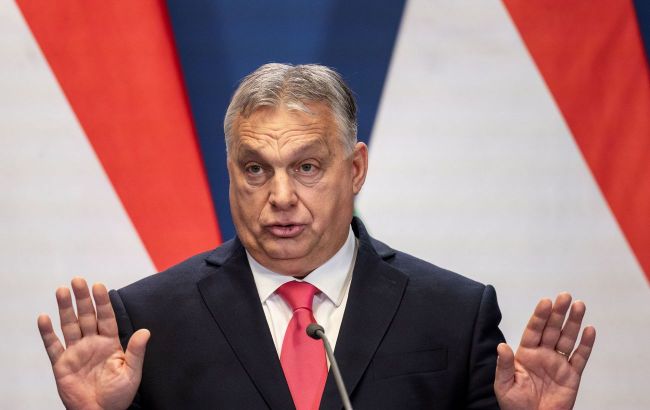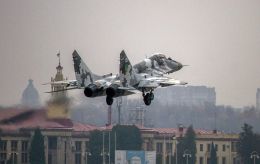Hungary blocks EU's 13th sanctions package against Russia
 Prime Minister of Hungary Viktor Orban (Getty Images)
Prime Minister of Hungary Viktor Orban (Getty Images)
Hungary blocked the approval of the 13th package of EU sanctions against Russia. This time, it wasn't driven by disagreement with measures aimed at Russia, but because of China, according to Financial Times.
The EU aims to finalize its 13th package of sanctions against Russia by the two-year anniversary of the full-scale invasion of Ukraine, which is in nine days. It will complement the package of financial support for Kyiv amounting to 50 billion euros and the proposal to reserve profits from frozen Russian assets.
Hungary was the sole opponent at yesterday's meeting of EU ambassadors, who otherwise would have signed the sanctions package targeting nearly 200 individuals and entities from Russia, China, and other countries believed to assist Moscow's military actions.
“The Hungarians did not agree due to Chinese companies,” said one of the officials.
Hungary and its Prime Minister Viktor Orban have repeatedly delayed or weakened EU measures aimed at punishing Russia or aiding Ukraine.
Another official, diplomatically briefed on the discussions, characterized them as "a very fruitful exchange," delicately noting that Hungary's blocking was due to the Budapest ambassador “request(ing) a bit more time to analyze the content of the proposals”.
The proposal is not without controversy as it entails imposing sanctions on three Chinese companies and one Indian company. A similar step last year was blocked by several member countries. If the proposal is approved, it will be the first time that mainland Chinese and Indian companies come under EU sanctions.
According to officials, discussions will continue, and it is most likely that they will be considered by ministers of member countries at the meeting next week. Supporters of the sanctions package hope to reach an agreement by next Wednesday to meet the deadline of February 24.
13th package of sanctions against Russia
In January, the European Union began discussing a new package of sanctions, which it intends to approve by February 24, 2024.
In early February, media reported that the new package would include over 200 companies and individuals.
According to Reuters, the sanctions package will not include new restrictions on the import of Russian goods.
Later, media reported that the EU proposed to impose sanctions on about 55 companies and over 60 individuals as part of the new package of measures, timed to coincide with the second anniversary of Russia's invasion of Ukraine.
On February 14, it became known EU ambassadors failed to agree on the 13th package of sanctions against Russia.

